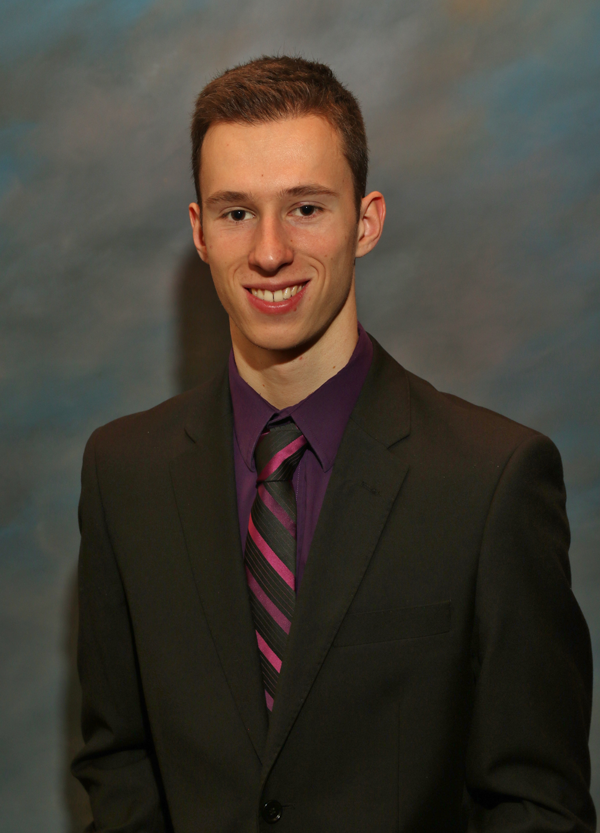
Alex Paterson ’17, a graduate of the mechanical engineering program in the College of Engineering, Technology, and Architecture (CETA), currently works as an aeronautical engineer for computational fluid dynamics at Northrop Grumman Corporation in California. He credits his experience at UHart and connections made with faculty for discovering his career interests.
He chose to attend the University of Hartford for its strong engineering program “combined with the University’s Division I athletics program and its reasonable distance from home.” His brother had previously attended UHart, so Paterson was familiar with campus, its community, and knew it would be a good fit for his career goals.
He has been attracted to the aerospace industry for as long as he can remember. “The sense of awe when seeing a jet fly by or a rocket taking off never seems to fade,” Paterson says. Beyond the countless ways engineering improves our daily lives and solves important problems, he explains, “I find pushing the boundaries of human flight and spaceflight to be a very inspiring goal.”
In his current role, Paterson is part of the Computational Fluid Dynamics, or CFD, group. This team performs simulations to answer questions about future aerospace vehicles. This field lies at the intersection of fluid mechanics, mathematics, and computer science, and the group’s work ranges from modeling propulsion devices to defining the flow field around an entire flight vehicle. “It is a very exciting world to be in,” Paterson says.
Through his experience working with Professor of Mechanical Engineering Ivana Milanovic, Paterson became excited about working in simulation. An important benefit of simulation is its low cost relative to experiments, which means it is often utilized at the cutting edge of technology. Many advanced design projects heavily rely on simulation to guide developing technologies. “For me personally, there aren’t many jobs more exciting than contributing to the next generation of aerospace vehicles,” Paterson says.
After graduating with a Bachelor of Science in mechanical engineering, Paterson went on to graduate school to earn his master’s degree in mechanical engineering from Stanford, which he says was an added valuable experience. “It allowed me to dig deeper into my areas of interest and hone the skills I first developed during my time at the University of Hartford.”
When asked what advice he would pass down to current CETA students, Paterson recommends reaching out to professors who work in your area of interest and asking to assist with research projects or other relevant work they may be doing. “I would also suggest seriously considering graduate school to those with even the slightest interest in continuing their studies. Graduate degrees are becoming increasingly valuable in engineering and frequently lead to new opportunities.”
Alex Paterson ’17, BSMEI think CETA’s greatest strength is its professors and their willingness to go the extra mile for students. Connecting with a professor who shares the same interests as you can lead to invaluable experience and mentorship.”